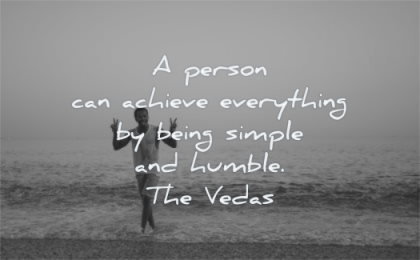Before starting our discussion on simplicity i want to ask you a very simple question, can we have a life without complexity? Take a pause of 10 seconds to think about it. According to me we cannot have a life without complexity, here we need to understand that Simplicity is not the absence of complexity — it’s the mastery of it. Simplicity simply means understanding all your tasks and conditions and choosing the best options and leaving the others. In life, simplicity might mean living with fewer distractions — but that can only happen once we recognize the chaos we’re surrounded by. In communication, simplicity means saying more with fewer words — but only after we’ve fully understood what needs to be said. In case of a problem it’s about choosing the best possible path after analysing all the other paths available. But the simplest path chosen may require more effort than the other paths. Take something as basic as scoring good marks. We all know the simplest way to do it: study regularly and work hard. That’s it. No shortcuts, no secrets. But instead of following this straightforward path, we distract ourselves with dozens of hacks, tips, time-table tricks, motivational videos, and last-minute strategies. Why? Because the simple path — though clear — is tough. It demands consistency, focus, and time. So we look for easier routes, even if they’re more complex and less effective. This shows us something important: simplicity isn’t about doing less. It’s about doing what’s necessary. And often, the most ‘simple’ solutions demand the most strength to follow.
Now the question arises, why mind choose such paths that are less effective and complex?
Fear of failure is the most important reason. When we choose a simple and clear path — like just studying regularly to score well, or being honest in a relationship, or sticking to a healthy routine — we’re putting ourselves out there. If it doesn’t work, the failure feels very personal. We can’t blame anything else. It’s like saying, “I did the right thing, and still failed.” That’s hard to accept. But when we follow a complicated path — like trying 10 different study hacks, using apps, switching plans, or overthinking every step — we create room for excuses. If we fail, we can say, “Maybe the method wasn’t right,” or “The plan didn’t work,” or “I was trying something new.” It softens the blow. We don’t feel fully responsible, and that makes failure a little easier to digest.
Sometimes, we feel like the more we do, the more control we have. So we keep adding steps, changing plans, or trying new tricks — thinking, “If I just adjust this one thing, it’ll work better.” This is what complexity does — it makes us feel like we’re in control. It keeps our hands busy, and our minds occupied. But simplicity is different. It says, “Pick one good path. Stick to it. Trust it.” And that’s hard for the mind, because it means doing less and letting go of the urge to control every little thing.
The simplest path often requires discipline, patience, and hard work — things the mind naturally resists. The brain is wired to avoid discomfort and seek pleasure or ease. So even if a path is logically better, if it feels harder in the short term, the mind looks for alternatives.
Simplicity is nothing but training your mind to follow a disciplined path Simplicity is nothing but training your mind to follow a disciplined path. It’s not about doing less — it’s about doing the right things, consistently. It’s about cutting through noise, distractions, and shortcuts, and choosing clarity over chaos. The path may look plain from the outside, but walking takes strength, focus, and self-trust. In our next episode we will discuss the ways to develop this simplicity in our life.

I’m exstremely impressed with yohr writiing skills as well aas with the layout on yokur weblog.
Is this a paid thee orr didd you modify it yourself? Either way keep upp
thhe exccellent quslity writing, itt iss razre to see a geat blog lkke this onne thesee days.